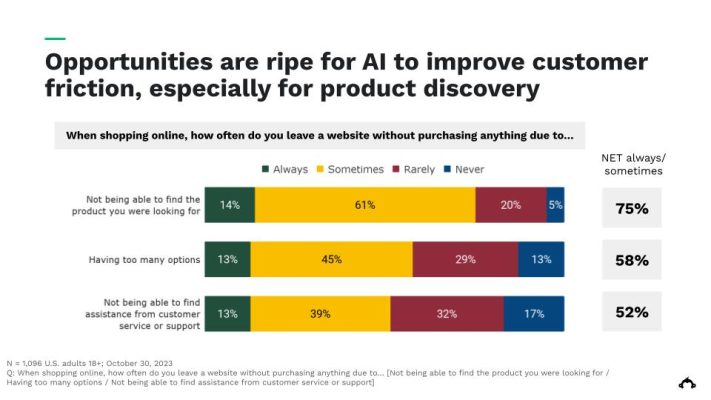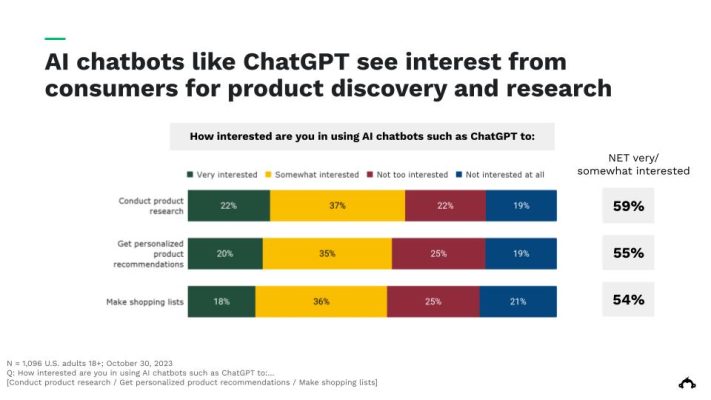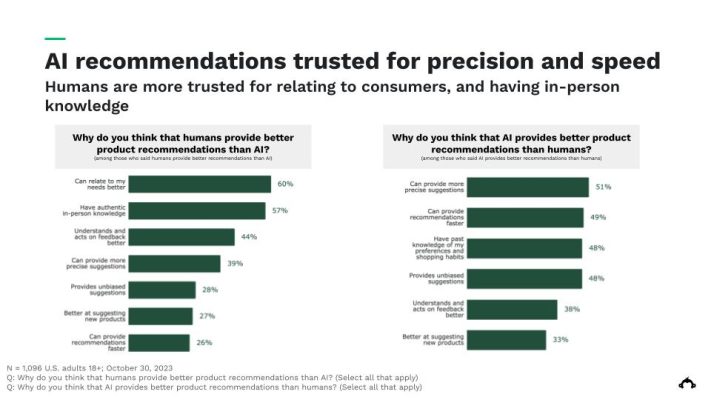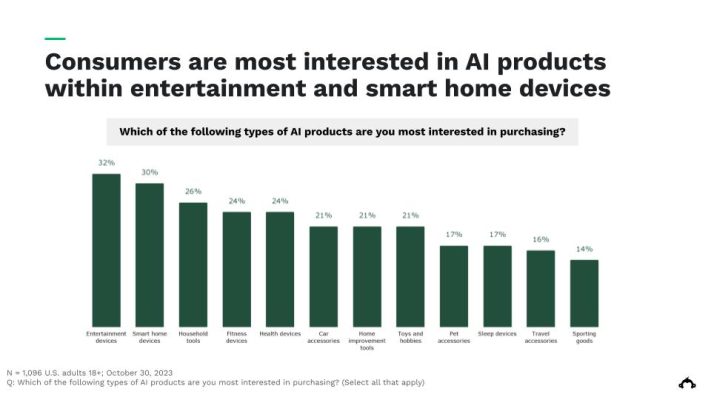Key findings:
- While consumers are already interacting with AI across the customer journey, opportunities are ripe for AI to improve customer friction, especially for product discovery
- Younger consumers are more bullish on AI when it comes to product recommendations, with human recommendations more trusted for being relatable to consumers and having in-person knowledge and AI recommendations more trusted for precision and speed
- Consumers are most interested in AI products within entertainment and smart home devices.
Consumers are already interacting with AI across the customer journey

From discovering new products to interacting with customer service, Americans are already experiencing AI through various interactions with brands. In the past 12 months:
- 54% used a chatbot for customer service or support
- 53% purchased a product recommended by a store or retailer
- 46% purchased a product shown on social media
- 37% used an online tool or service to virtually ‘try on’ products before purchasing
- 35% made a purchase using voice assistant
- 34% used a chatbot to learn about or discover new products
Opportunities are ripe for AI to improve customer friction, especially in product discovery

Despite the prevalence of AI across multiple touchpoints in the customer journey, opportunities remain, with the majority of customers saying they always or sometimes leave a company’s website without purchasing anything due to not being able to find the product they were looking for (75%), having too many options (58%), or not being able to find assistance from customer service or support (52%).
AI chatbots like ChatGPT see interest from consumers for product discovery and research

Generative AI chatbots similar to ChatGPT see interest from consumers, with more than half expressing interest in using such chatbots for conducting product research (59%), getting personalized product recommendations (55%), or making shopping lists (54%).
Most consumers still trust humans more than AI when it comes to product recommendations, but younger consumers are more bullish on AI

Nearly half (48%) of consumers say they think a human provides better product recommendations than AI would (24%), while 27% see no difference in ability. Those who preferred humans over AI cited humans being better at relating to their needs (60%) and having more authentic in-person knowledge (57%).

AI providing more precise suggestions (51%), providing faster recommendations (49%), knowledge of preferences and shopping habits (48%) and providing unbiased suggestions (48%) were the leading reasons among those who preferred AI over humans for product recommendations.
Related reading: 25 stats that show how consumers really feel about AI.
Entertainment and smart home devices are the leading category for AI products

Americans express the most interest in AI for entertainment devices (32%), such as headphones and televisions, and smart home devices (30%) such as Amazon Echo. One in four also show interest in purchasing fitness devices (24%), health devices (24%) and household tools (26%) that use AI. Sporting goods (14%), travel accessories (16%), sleep devices (17%), and pet accessories (17%) see the lowest levels of purchase interest from consumers.
Read more about our polling methodology here.
Click through all the results in the interactive toplines below:



